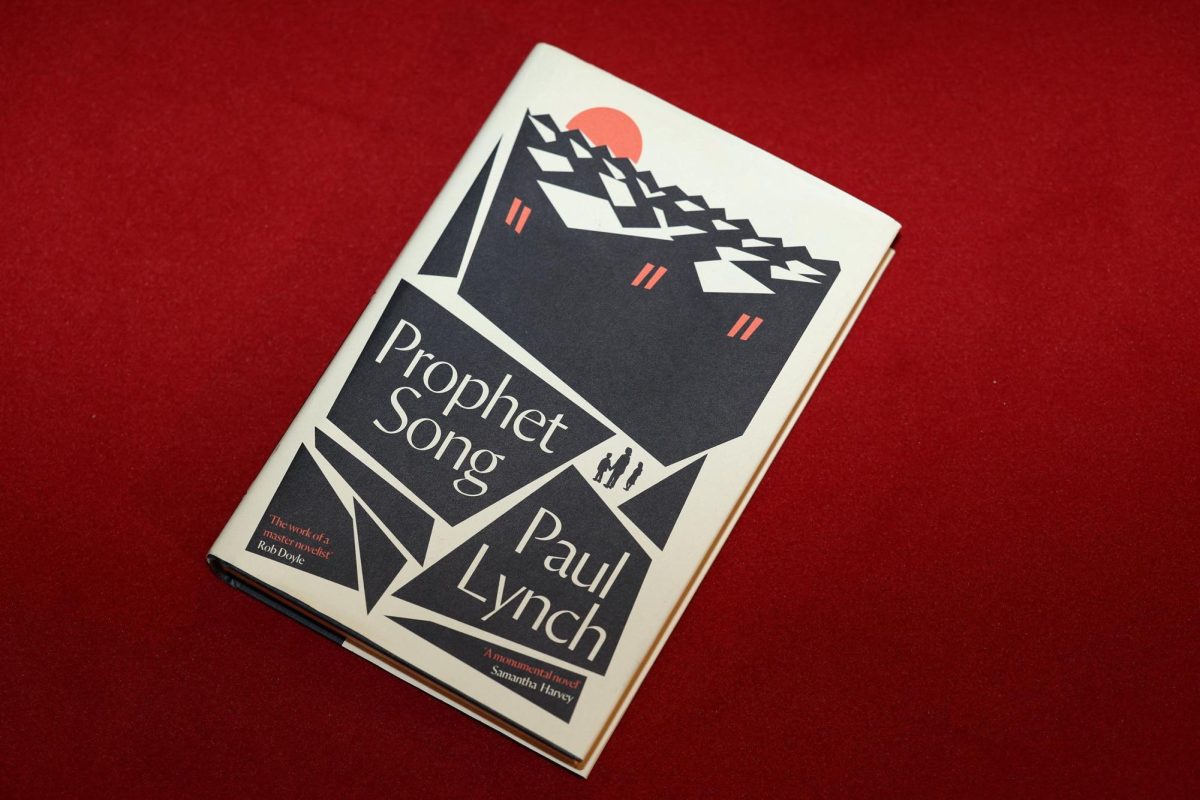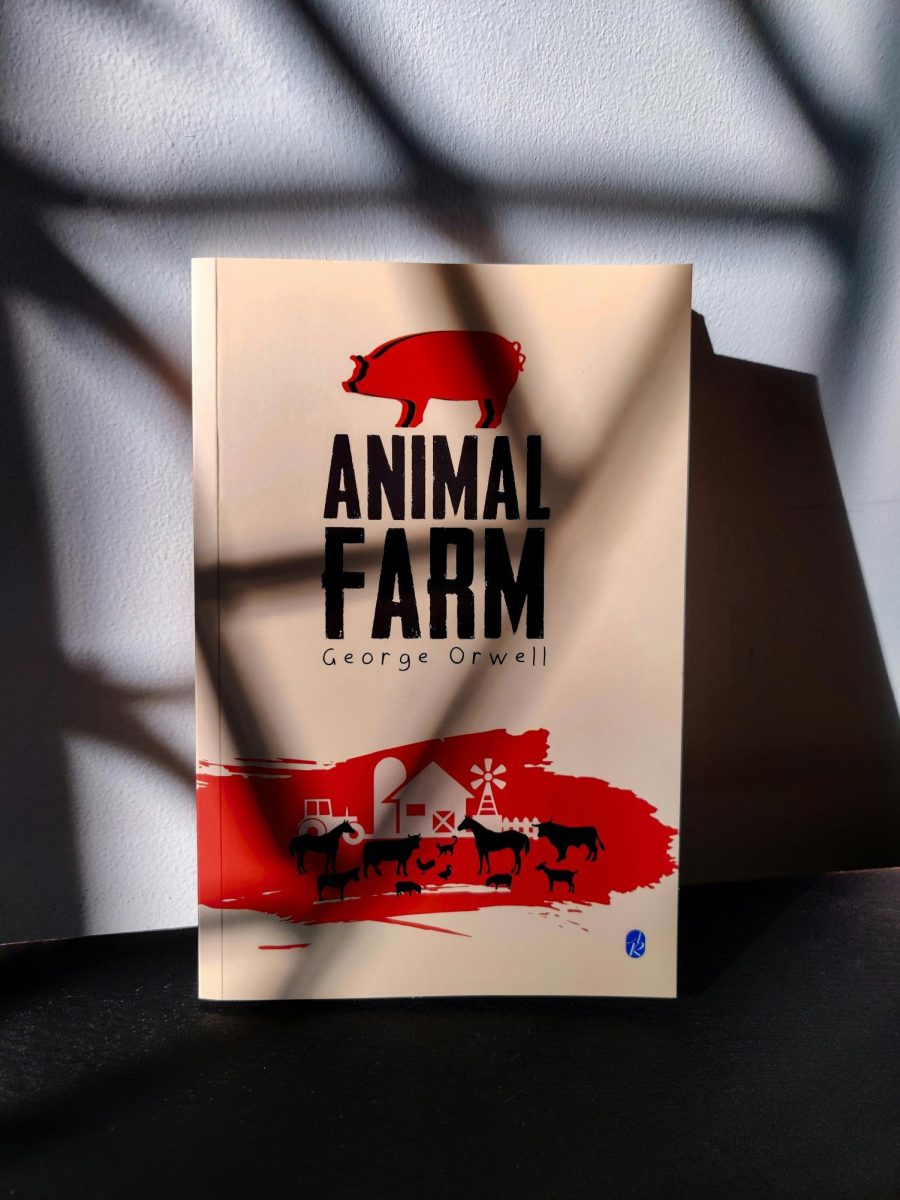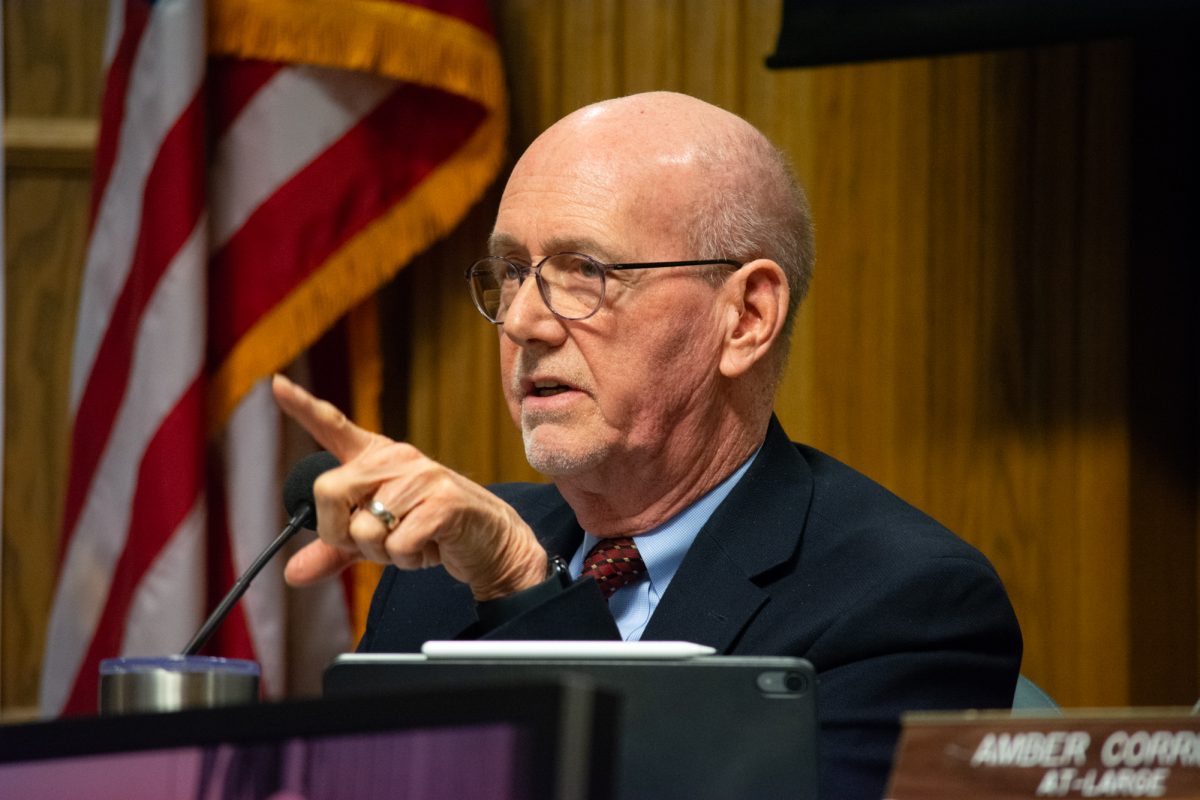Many of you may have already stumbled upon this masterpiece of modern literature, which isn’t an unlikely circumstance given the popularity of the book.
However, if you haven’t yet had the pleasure, I introduce you to The Booker Prize 2023 winner, “Prophet Song” by Paul Lynch, an Irish writer and author of popular titles such as “Red Sky in Morning,” “The Black Snow” and “Grace” among others.
Without spoiling too much of the novel, this review attempts to reveal the necessity of Lynch’s book. It is an unconventional novel: it has no chapters and the dialogue is built into paragraphs with no quotation marks. The paragraphs are also lengthy and follow a uniform structure. However, I found that this structure did not hinder readability. In fact, the reader is guided through the story with relative ease; a credit to Lynch’s writing ability.
Now, to the content of the book. A middle-class family in Dublin begins to fall apart as a tyrannical government tightens its grip on every facet of their lives. Specifically, Eilish Stack, a mother-of-four, is left to pick up the pieces when, one night, the Irish secret police show up at her house, simply wanting to speak to her husband.
What follows is a chronicle of absolute panic, one that slowly develops and is psychologically terrorizing. It goes without saying why this is relevant. The sinister and claustrophobic nature of authoritarianism, especially in the modern world, with technology and surveillance at their pinnacle, represents the future that we are dangerously backsliding into.
Eilish is plagued with optimism that proper measures will soon be implemented. Reason and rationality will follow suit. The world won’t abandon a place where injustice is taking hold. What Eilish soon finds out is that she will be forced to come to terms with reality, and the most troubling process that unfolds over the book is that hope becomes a fallacy. Every move becomes one of survival. Such a thing is foreign to most of us, especially in Western nations such as Ireland. Lynch’s objective, in my estimation, was to tell a story that acts as a wake-up call.
“Lynch’s dystopian Ireland reflects the reality of war-torn countries, where refugees take to the sea to escape persecution on land,” one reviewer for the Guardian wrote. “‘Prophet Song’ echoes the violence in Palestine, Ukraine and Syria, and the experience of all those who flee from war-torn countries. This is a story of bloodshed and heartache that strikes at the core of the inhumanity of western politicians’ responses to the refugee crisis.”
This paragraph reveals the central focus of the novel and, in many ways, reflects the hopelessness we have in the most free world ever created. This is the new unfreedom. One where we have access to everything we could possibly want but a poverty of everything we need.
I highly recommend “Prophet Song.”
Rating: 9/10









Bill Trafka | Jan 23, 2024 at 6:34 am
Very nice review. I’m in the midst of “Prophet Song” and was so glad to read your perspective. At first. Lynch’s technique of long paragraphs without quotes in dialogue was confusing, but I enjoyed doing the work and was rewarded with ease as the book progressed. I like this technique because it thrusts the reader into the unrelenting reality of the insidiousness of authoritarian control and the desperation and despair resulting from it. The chapter breaks, which do exist, are moments of respite and pondering. Regardless, Lynch is sounding the alarm. We now have the responsibility to respond and be proactive to prevent a similarly tragic turn of events in our free nation.